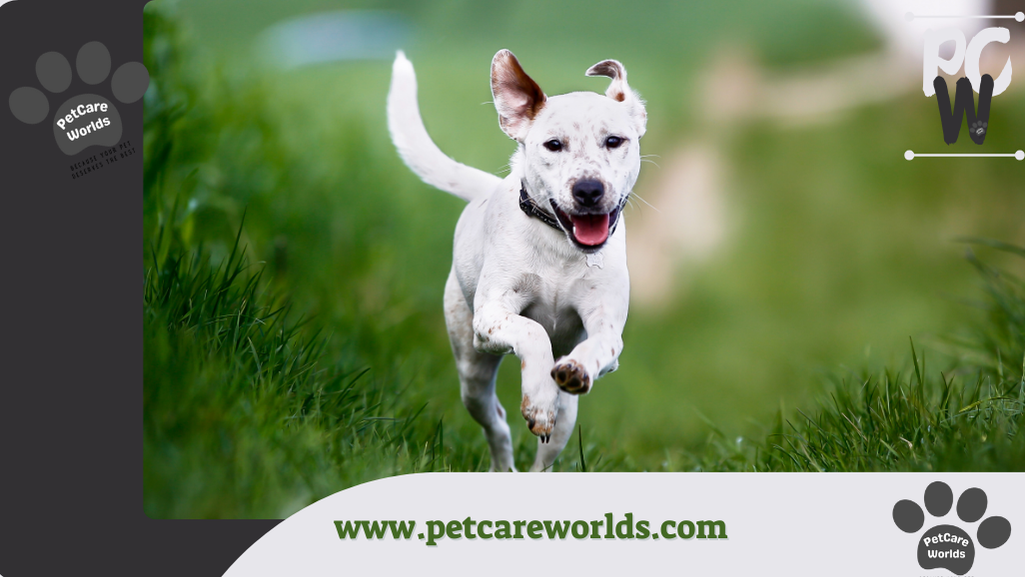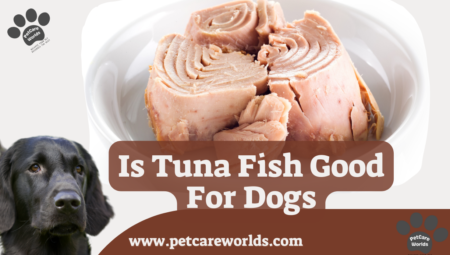Catnip for Dogs – it might sound surprising, but yes, dogs can enjoy it too! While catnip is famously known for driving cats wild, it turns out this herb can offer a variety of benefits for our canine companions. Whether you’re looking to soothe your dog during a storm or help with motion sickness, catnip might be the natural solution you’ve been searching for. But how exactly does it work for dogs, and is it safe? Let’s dive in!
Catnip for Dogs
Catnip isn’t just for cats. Dogs can enjoy it too, but what does it actually do for them? You might be surprised by the calming effects it offers. This little plant could be your dog’s new best friend in moments of stress or anxiety. But, is it safe? And how can you use it? Catnip for Dogs
What Is Catnip?
Catnip is a herb from the mint family. It contains a compound called nepetalactone, which has a strong effect on cats, making them feel playful or relaxed. For dogs, though, the impact is a bit different. Here’s what makes it special:
- Nepetalactone: The same compound that affects cats has a milder effect on dogs.
- Calming properties: It helps reduce stress and anxiety.
- Vitamins & minerals: Contains C and E vitamins and magnesium, which can be beneficial for dogs.
But how exactly does it affect them? Let’s explore further! Catnip for Dogs
Can Dogs Eat Catnip?
Yes, dogs can eat catnip! While they won’t react the same way as cats, it is completely safe for them. In fact, it can offer some surprising health benefits. But remember, like any treat, moderation is key. A little goes a long way, so don’t overdo it. Catnip for Dogs
Is Catnip Safe for Dogs?
Absolutely. Catnip is non-toxic for dogs. It’s generally safe in small amounts and can even be beneficial. However, some dogs may have mild reactions like a bit of an upset stomach. To be sure, always start with a small amount and observe. If you notice any unusual behavior, it’s best to consult your vet.
How Does Catnip Affect Dogs?
Catnip affects dogs differently than cats. Here’s how:
- Calming: It can relax dogs, especially those with anxiety or stress.
- Mild sedative: It may help your dog feel more at ease during stressful moments like thunderstorms or fireworks.
- Digestive aid: It can soothe upset stomachs or motion sickness.
- Natural repellent: It might even help keep pests like fleas away!
The effects are gentler, but still very effective in the right situations. Catnip for Dogs
The Health Benefits of Catnip for Dogs
Catnip offers a range of health benefits for dogs. It’s more than just a treat; it can help with various physical and emotional needs. Some of the top benefits include:
- Stress relief: Helps your dog relax in stressful situations.
- Improved digestion: Can soothe an upset stomach.
- Natural pest repellent: Keeps fleas and mosquitoes at bay.
A simple plant with powerful benefits for your furry friend. Catnip for Dogs
Calming Effects of Catnip
Catnip can act as a natural sedative for dogs. It’s perfect for those times when your dog feels restless or anxious. Here’s what it does:
- Promotes relaxation: Helps your dog wind down.
- Soothes nerves: Reduces anxiety during thunderstorms or car trips.
- Non-habit forming: Unlike some calming medications, catnip won’t create dependence.
A gentle, natural way to calm your dog’s nerves. Catnip for Dogs
Helping Dogs with Anxiety and Stress
Dogs, like people, can feel anxious or stressed. Catnip can be a simple solution. Here’s how it helps:
- Calms the mind: Eases worry and nervousness.
- Reduces anxiety: Great for dogs who get nervous in certain situations.
- Safe alternative: A natural option compared to medications.
If your dog is often stressed, catnip could be the answer you’re looking for. Catnip for Dogs
Dealing with Motion Sickness in Dogs
Is your dog prone to motion sickness? Catnip can help. It has mild anti-nausea properties that can ease the discomfort. Here’s how:
- Reduces nausea: Helps soothe upset stomachs caused by travel.
- Relieves dizziness: Calms the spinning feeling some dogs get during car rides.
- Safe and natural: No need for chemicals or medication.
A great way to help your dog feel more comfortable on trips.
Catnip for Better Sleep in Dogs
Struggling with a dog who can’t settle down at night? Catnip might help them get a better night’s sleep. Here’s how:
- Promotes restfulness: Helps your dog fall asleep more easily.
- Natural sleep aid: Calms the body and mind before bedtime.
- Non-habit forming: No risks of dependence or side effects.
If your dog has trouble sleeping, catnip can be a gentle and natural solution. Catnip for Dogs
Natural Insect Repellent: Catnip’s Role
Did you know that catnip can act as a natural insect repellent? It can keep your dog protected from pests like fleas and mosquitoes. Here’s how:
- Repels fleas: Keeps your dog’s coat pest-free.
- Deters mosquitoes: Helps avoid bites during walks.
- Safe for your dog: Unlike chemical repellents, catnip is gentle and non-toxic.
A natural way to protect your dog from unwanted insects.

How to Use Catnip for Your Dog
Using catnip for your dog is easy, but it’s important to get the dosage right. Here are some ways to incorporate it into your dog’s routine:
- Add to meals: Sprinkle dried catnip on your dog’s food.
- Treats: Mix it into homemade dog treats for a soothing snack.
- Water: Drop a few fresh leaves into your dog’s water bowl.
- Direct contact: Let your dog sniff fresh catnip leaves for immediate calming effects.
Remember, moderation is key! Start small and see how your dog reacts.
Different Forms of Catnip for Dogs
Catnip comes in different forms, making it easy to find the right option for your dog. Here’s what you can choose from:
- Dried catnip: The most common form. You can sprinkle it on food or mix it into treats.
- Fresh catnip: If your dog likes fresh leaves, this can be a great option.
- Catnip sprays: For easy application, you can use a spray on your dog’s bed or toys.
- Catnip gel: Some brands offer gels that can be applied to treats or food.
Experiment with different forms to find what your dog enjoys best. Catnip for Dogs
Is Catnip a Regular Treat for Dogs?
Catnip is not meant to be a regular part of your dog’s diet. It’s more of an occasional treat or reward. Here’s why:
- Not a daily snack: It should only be given from time to time.
- Special occasions: Use it for calming during stressful situations.
- Health benefits: It’s helpful for anxiety, motion sickness, or sleep, but shouldn’t replace regular meals.
Treat catnip like a special gift, not an everyday item.
Consulting with a Veterinarian
Before giving your dog catnip regularly, it’s a good idea to consult with your veterinarian. Here’s why:
- Individual needs: Each dog is different. Your vet can suggest the best way to use catnip based on your dog’s health.
- Possible side effects: Although rare, some dogs may have a mild reaction to catnip.
- Alternative options: If catnip isn’t the best fit for your dog, your vet can recommend other calming methods or supplements.
It’s always safest to check with a professional to ensure your dog’s health is a priority.

Catnip for Dogs Table
| Benefit | Description |
|---|---|
| Calming Effects | Helps reduce anxiety and stress, promoting relaxation in dogs. |
| Digestive Aid | Can soothe upset stomachs and aid digestion, especially during travel or motion sickness. |
| Better Sleep | Assists in improving sleep quality by calming the mind and body. |
| Natural Insect Repellent | Acts as a natural repellent for fleas and mosquitoes, keeping your dog pest-free. |
| Non-Toxic | Safe for dogs in moderate amounts; no harmful side effects when used appropriately. |
| Mild Effect | Unlike cats, dogs respond more subtly, with less intense reactions to catnip. |
“Catnip for dogs offers a natural and gentle way to help with anxiety, digestion, and even pest control.”
Catnip for Dogs FAQ
1. Can catnip make my dog sick?
In general, catnip is safe for dogs in small amounts. However, if your dog eats too much, they might experience mild digestive upset, like vomiting or diarrhea. Always start with a small amount and monitor your dog’s reaction.
2. How much catnip can I give my dog?
The amount of catnip depends on your dog’s size and tolerance. Start with a small pinch of dried catnip or a few fresh leaves. Over time, you can adjust the amount based on your dog’s response, but remember, moderation is key.
3. Can catnip help my dog with anxiety?
Yes, catnip can have calming effects on dogs, helping them relax during stressful situations like thunderstorms or car rides. It’s a natural alternative to anxiety medications.
4. Is catnip safe for puppies?
Catnip is generally safe for puppies, but you should consult with your veterinarian before introducing it, especially if your puppy has any existing health issues or sensitivities.
5. How should I give catnip to my dog?
You can offer catnip to your dog in several forms: mix it into their food, add it to homemade treats, or let them chew on fresh leaves. Just make sure you don’t overdo it.
Conclusion
Catnip for dogs can be a safe and natural way to help with anxiety, stress, and even sleep problems. Always use it in moderation and consult a vet if needed.





